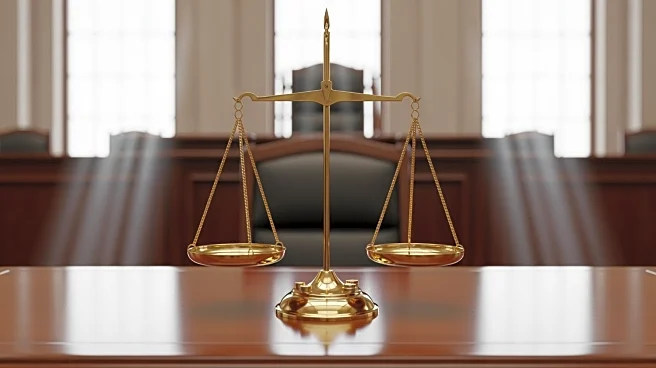What's Happening?
The Justice Department is defending the indictment of former FBI Director James Comey, insisting that the charges were properly approved despite earlier statements suggesting procedural irregularities. Lindsey Halligan, the interim U.S. attorney for the Eastern
District of Virginia, reversed her previous comments, stating that the grand jury did approve the charges. The case involves accusations of Comey making false statements and obstructing Congress. The indictment process has been criticized for its irregularities, with concerns that the full grand jury did not review the final indictment. Halligan replaced an experienced prosecutor who resigned amid pressure from the Trump administration to indict Comey.
Why It's Important?
The handling of the Comey indictment raises questions about the integrity of the judicial process and the influence of political pressure on legal proceedings. The case against Comey, a political opponent of President Trump, highlights the potential for politicization within the Justice Department. The procedural concerns could jeopardize the prosecution and undermine public confidence in the justice system. Ensuring transparency and adherence to legal standards is crucial to maintaining the credibility of the Justice Department and upholding the rule of law.
What's Next?
The Justice Department may face increased scrutiny and calls for an investigation into the handling of the Comey indictment. Legal experts and lawmakers may demand a review of the indictment process to ensure compliance with legal standards. The case could lead to broader discussions about the politicization of the Justice Department and the need for reforms to safeguard against political influence. The outcome of the Comey case may have implications for future prosecutions involving political figures.

















